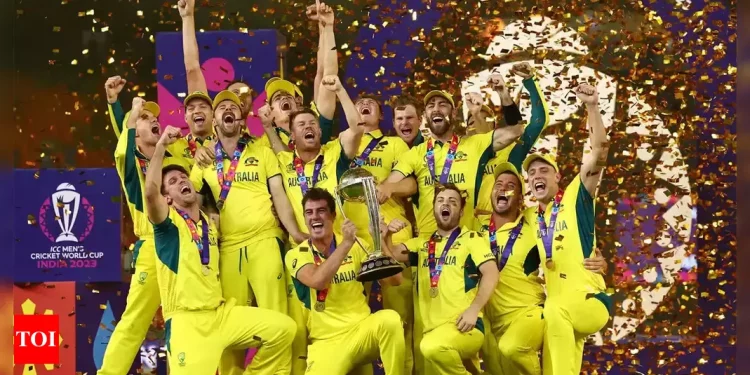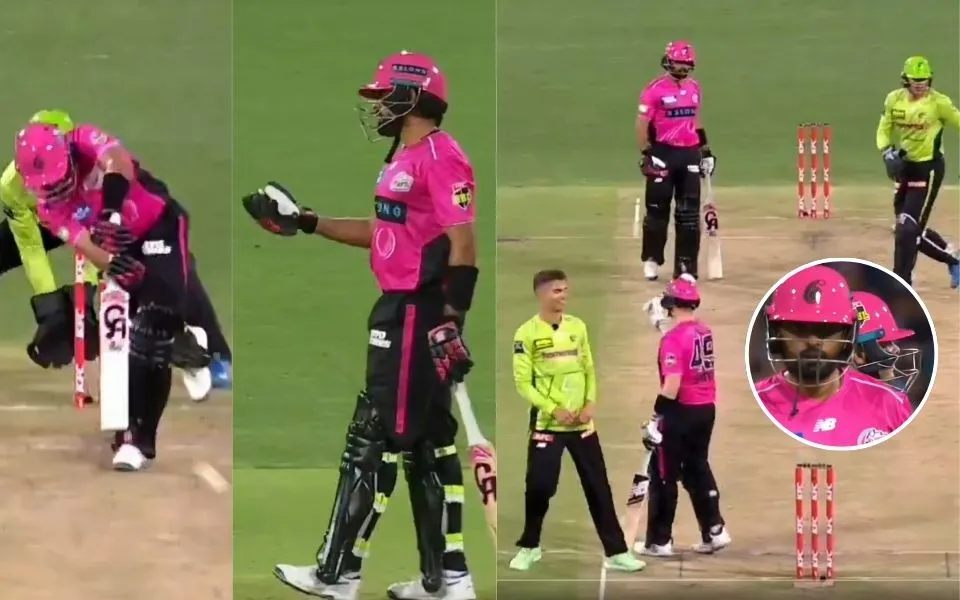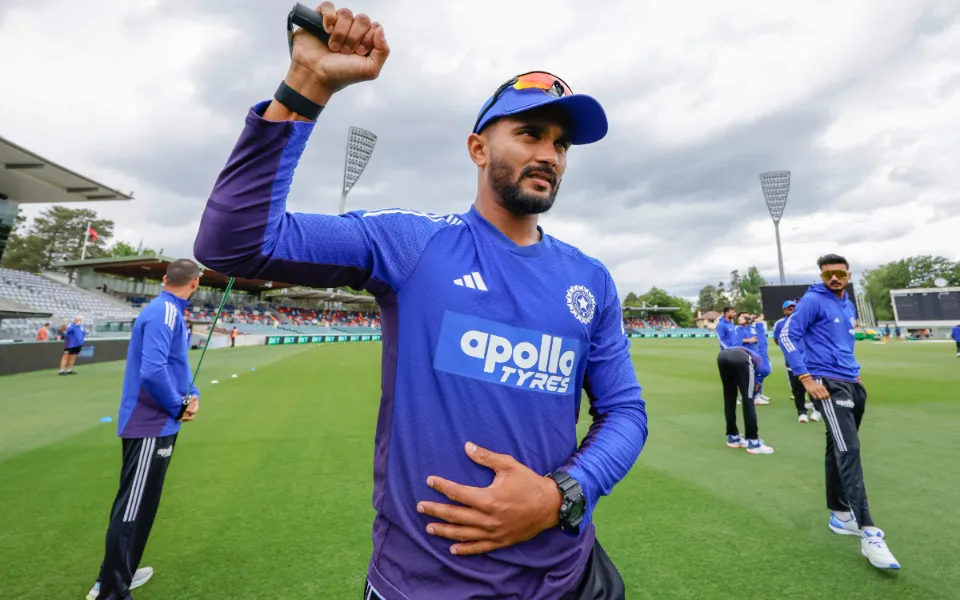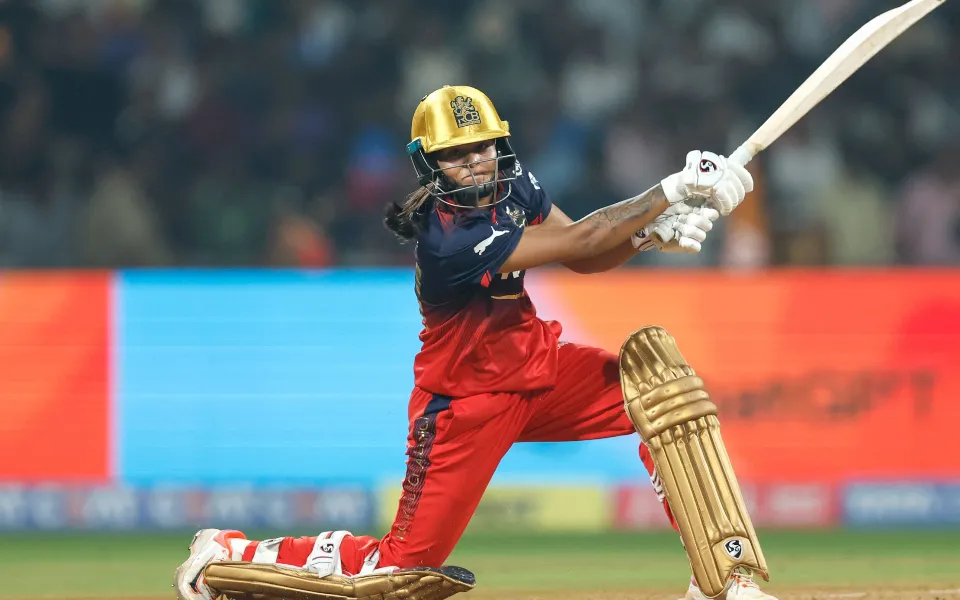The ICC Men’s ODI World Cup 2023 Team of the Tournament is made up of players from five teams. There are stars from the victorious Australia, the runners-up India, the semi-finalists South Africa and New Zealand, and Sri Lanka.
After leading Australia to a historic sixth victory, all-rounder Glenn Maxwell and spinner Adam Zampa are included. Along with top run scorers Kohli and Sharma and top wicket-taker Mohammed Shami, the six Indian talents chosen are KL Rahul, Ravindra Jadeja, and Jasprit Bumrah.
Wasim Khan, the General Manager of Cricket at the ICC, Ian Bishop, Kass Naidoo, Shane Watson, and Sunil Vaidya, a journalist for the Ahmedabad Mirror, made up the selection panel.
The following is the ICC Men’s ODI World Cup 2023 squad, in batting order:
- Quinton de Kock (wk) (South Africa): 594 runs at 59.40
- Rohit Sharma (c) (India): 597 runs at 54.27
- Virat Kohli (India): 765 runs at 95.62
- Daryl Mitchell (New Zealand): 552 runs at 69
- KL Rahul (India): 452 runs at 75.33
- Glenn Maxwell (Australia): 400 runs at 66.66 and six wickets at 55
- Ravindra Jadeja (India): 120 runs at 40 and 16 wickets at 24.87
- Jasprit Bumrah (India): 20 wickets at 18.65
- Dilshan Madushanka (Sri Lanka): 21 wickets at 25
- Adam Zampa (Australia): 23 wickets at 22.39
- Mohammed Shami (India): 24 wickets at 10.70
12th player: Gerald Coetzee (South Africa): 20 wickets at 19.80
For the second time in the 50-over ODI World Cup, Sharma was named to the Team of the Tournament, setting the standard for India’s top order.
After a lackluster debut against Australia, the seasoned opener stunned everyone by scoring an incredible 131 off of just 84 balls to claim the Player of the Match title against Afghanistan.
In support of that, he scored the highest score of 86 in a crucial victory against bitter rival Pakistan. From then on, he passed 40 on all but one of the occasions, including the last match against Australia.
In his final days as an ODI player, the retiring Quinton de Kock made history by ending his career in style and joining him at the top of the order.
By surpassing 500 runs and claiming 20 wickets in a single tournament, the South African became the first wicketkeeper in World Cup history.
As the Proteas advanced to the semi-finals, De Kock smashed four centuries, falling just one shy of Adam Gilchrist’s record of 21 from the 2003 event. He also finished just one short of Sharma’s record of five centuries in a single tournament.
As he did in the ICC Men’s T20 World Cup a year ago, Kohli, who also topped the run-scoring charts, rounds out the top order.
With a record-breaking 765 runs at an average of 95.62, Kohli broke the previous record set by Sachin Tendulkar, who scored 673 runs in the 2003 tournament.
With his 117th and third tournament century, Kohli put on his greatest effort in the semi-final victory over New Zealand, leading India to their first final in twelve years.
Mitchell, who batted No. 4 in his debut 50-over World Cup match, hit two hundred against India.
The prolific Kiwi amassed a final total of 552 runs, including a brilliant 130 in the round robin against the Men in Blue and a brilliant 134 in the semi-final.
Rahul of India is ranked fifth in the competition after scoring a century in a comfortable victory over the Netherlands and several other significant innings.
Rahul led India in scoring with 66 in the championship match, but it was in vain as a motivated Australian team denied the hosts.
Australia’s sixth world champion, all-rounder Maxwell, is ranked No. 6. He scored the game-winning runs in the final.
Against the Netherlands in the round robin, Maxwell struck for the fastest century in World Cup history with 106 runs off of 44 balls, and the 309-run victory margin became the largest in the history of the competition.
With his 201 not out to guarantee Australia’s spot in the semi-finals, he was just as dominant against Afghanistan, making a solitary trench.
After demonstrating his skill with the ball—most notably against South Africa, when he became just the second Indian spinner after Yuvraj Singh to capture five wickets in an ODI World Cup—India’s Jadeja was named second all-rounder.
Three days later, Jadeja created additional history when, against the Netherlands, he claimed two wickets to surpass both Anil Kumble and Singh as the most wickets taken by an Indian spinner in a single World Cup.
After taking 20 wickets, two more than his total from 2019, Bumrah, along with opener and partner Sharma, is picked for the second World Cup in a row.
As India looked to mount a spectacular comeback in the championship match, Bumrah, who was always dangerous with the new ball, took early wickets of Australia’s Mitchell Marsh and Steven Smith.
Rising sensation Madushanka of Sri Lanka, who made his international debut with five wickets in eighty against India, comes in at number nine.
The left-arm fast was third in the standings after taking four wickets against the Netherlands, three against Australia, and two apiece against Pakistan and South Africa by that point.
Zampa is ranked No. 10 in the world after getting 23 wickets and deceiving the top batsmen in the competition.
In three straight matches against Pakistan, Sri Lanka, and the Netherlands, he grabbed four wickets; his only blank came against South Africa in the semi-final.
In the championship game, spinner Zampa took out Bumrah to tie Muttiah Muralitharan’s record of 23 wickets in a World Cup.
Shami, who went seven-for-seven in the World Cup semifinal victory against New Zealand, completed the lineup with the best numbers of any bowler in a knockout match.
After captivating performances against Sri Lanka (5/18) and New Zealand (5/54), Shami’s performance propelled him to the top of the wicket lists.
Gerald Coetzee, who made his ICC tournament debut and was among the wickets in every game he played, is the 12th man.
With 20 wickets in eight matches, Coetzee became the leading South African wicket-taker in a single World Cup, and he became a vital member of the Proteas squad after injuries to Anrich Nortje and Sisanda Magala.


![[WATCH] Pakistan Under-19 batter involved in bizarre run-out to hand England 37-run win, video goes viral 3 [WATCH] Pakistan Under-19 batter involved in bizarre run-out to hand England 37-run win, video goes viral](https://cricketmood.com/wp-content/uploads/2026/01/1768626654529_Untitled-design-93.webp)



